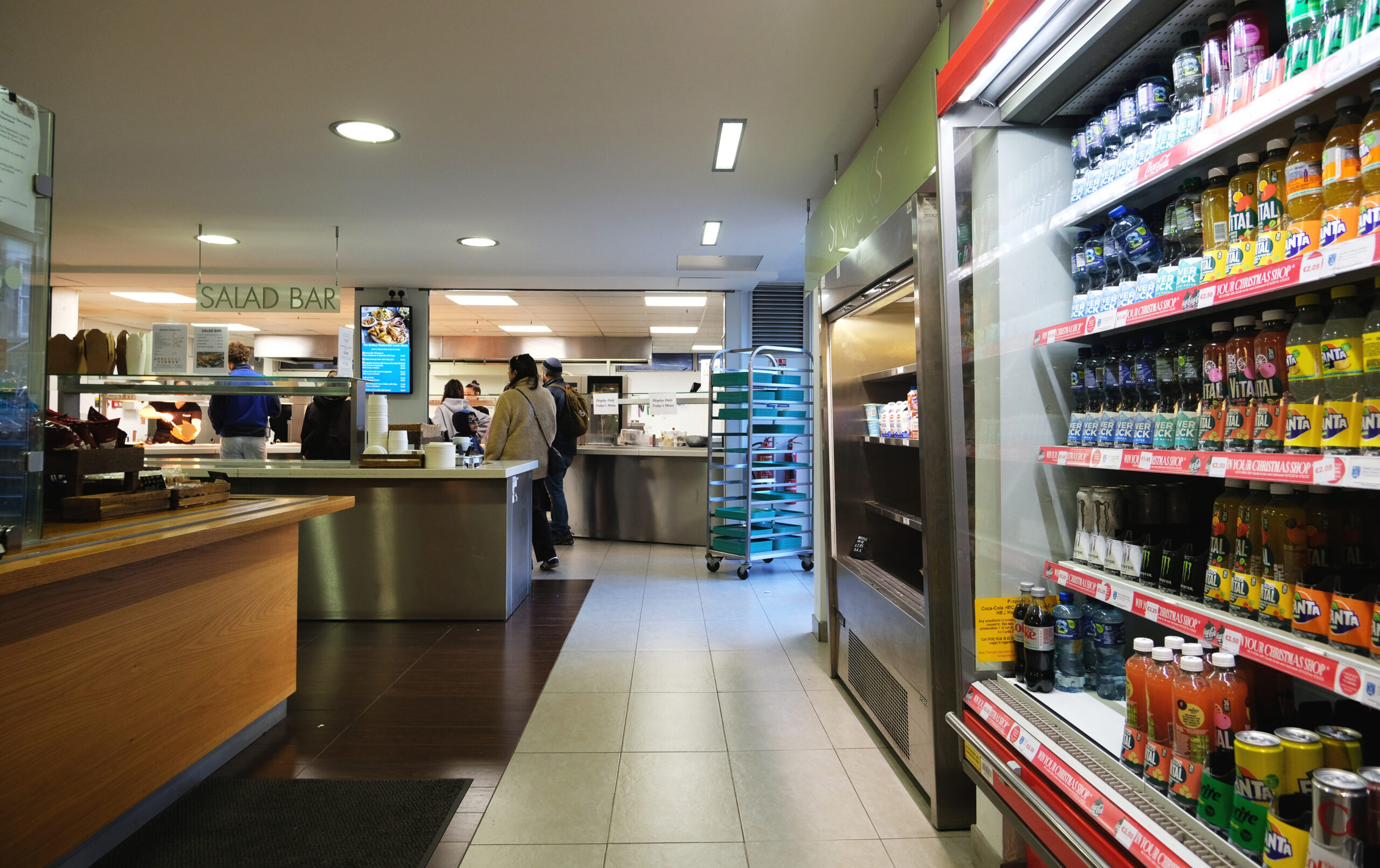As most students at Trinity know, the Buttery is the place to go for an afternoon meal in between lectures for students and professors alike – the go-to catering facility on campus. Though the Buttery is popular among students, few think about how it is organised, or how it formally interacts with the College as a whole.
A dominant factor in the popularity of the Buttery is its offering of large hot meals from the comfort of campus. When asked to approximate just how much food the Buttery serves up, one employee said it is up to “maybe 300 plates” a day.
A similar sentiment was expressed by the Head of Trinity Catering Moira O’Brien, who stated that there is regularly “a line out the door for lunch”. It is due to this large workload that the effectiveness of the Buttery’s management is key to ensuring operations run smoothly.
“As O’Brien points out, you could walk the length of the campus and find the exact same food being served“
It is important to note that the Buttery isn’t run independently; it is part of Trinity Catering, run directly by College. Trinity Catering is responsible for all other College-run catering facilities around campus, such as the Forum Café in the Business School, the Perch Café in the Arts Block, and the Dining Hall in Front Square. As O’Brien points out, you could walk the length of the campus and find the exact same food being served.
As part of this centralised catering system, staff are, in most cases, employed by Trinity Catering as a whole, rather than just the Buttery. Because of this, most Buttery staff also work shifts in Trinity’s other catering facilities, which means that they do a variety of jobs and work varied schedules.
One member of staff described how when she works in the Buttery, it’s usually from around 11am until 3pm. However, she more frequently works in the Dining Hall, where she is more likely to be working in the evening. The types of tasks involved in each job are also different. Another Trinity Catering employee, explained that the Buttery staff focus on cleaning, whereas waiting tables is the primary role during most evening shifts in the Dining Hall.
The timing of these shifts is a rough indication of when staff are needed in each location. One employee described how there are essentially two large Buttery rushes: the first run usually occurs for breakfast at around 9am, which is mostly managed by the relatively small number of more experienced staff that only work in the Buttery.
The part-time staff, typically students, often turn up to work at 11am, when the breakfast rush is ending, and help clean up. The second rush occurs around 1pm, during lunch time, and ends around 3pm. This can vary depending on the time of year. Most customers during the summer months are tourists and so the cafe’s schedule becomes more irregular. One employee also noted that it is busier at the beginning of the week, which she believes could reflect students’ enthusiasm to come into college lessening at the close of the week.
How these shifts are allocated to part-time workers has its positives and negatives, according to staff. The available shifts are released to the pool of available part-time staff at the beginning of the week and staff volunteer to work shifts of their choice. One employee explained that they like this system since it allows staff to choose their shifts and gain experience doing different jobs.
Another employee, while also complimentary of the system, pointed out the risk of job insecurity that comes with such a system. The releasing of shifts all at once can lead to difficulty in obtaining them; if you aren’t quick enough asking for hours, you might end up not working that week. However, she also states that supervisors are understanding and will “make up a shift for you” if you need money.
The working environment is a key attraction of working with Trinity Catering. The staff interviewed by Trinity News described it as friendly and relaxed. One employee explained that his supervisors were very helpful when he started at Trinity Catering and said that the role has provided him with the opportunity to make friends with many other students. Another student employee also praised her supervisors for their ability to work around lectures and willingness to offer employees free food while on shift.
This hospitable environment for staff is something that Trinity Catering takes great pride in, with O’Brien describing the staff at the Buttery as “like a family”.
Despite this praise, many other members of Catering refused to be interviewed. There was also at least one member of staff who said they’d be willing to be interviewed pending permission from management, which was denied.
“One employee claimed that Trinity Catering staff were paid less than the wage paid by Trinity College Dublin Students’ Union, who voted to pay its part-time staff the living wage in 2022, at the time €12.90“
Additionally, one employee claimed that Trinity Catering staff were paid less than the wage paid by Trinity College Dublin Students’ Union, who voted to pay its part-time staff the living wage in 2022, at the time €12.90. When asked about this, O’Brien said that she wasn’t aware of the union’s payscale: “We pay the minimum wage, this has never been an issue.”
Nevertheless, the staff interviewed generally seemed happy with the working environment at Trinity Catering. The flexibility of hours, the experience gained in the workplace while studying, and the obvious proximity to College, makes these students feel like their job is worthwhile. Moreover, a system designed around the two rushes of the day seems to be beneficial when attempting to feed large numbers of students rushing to get the meal of the day between classes.






